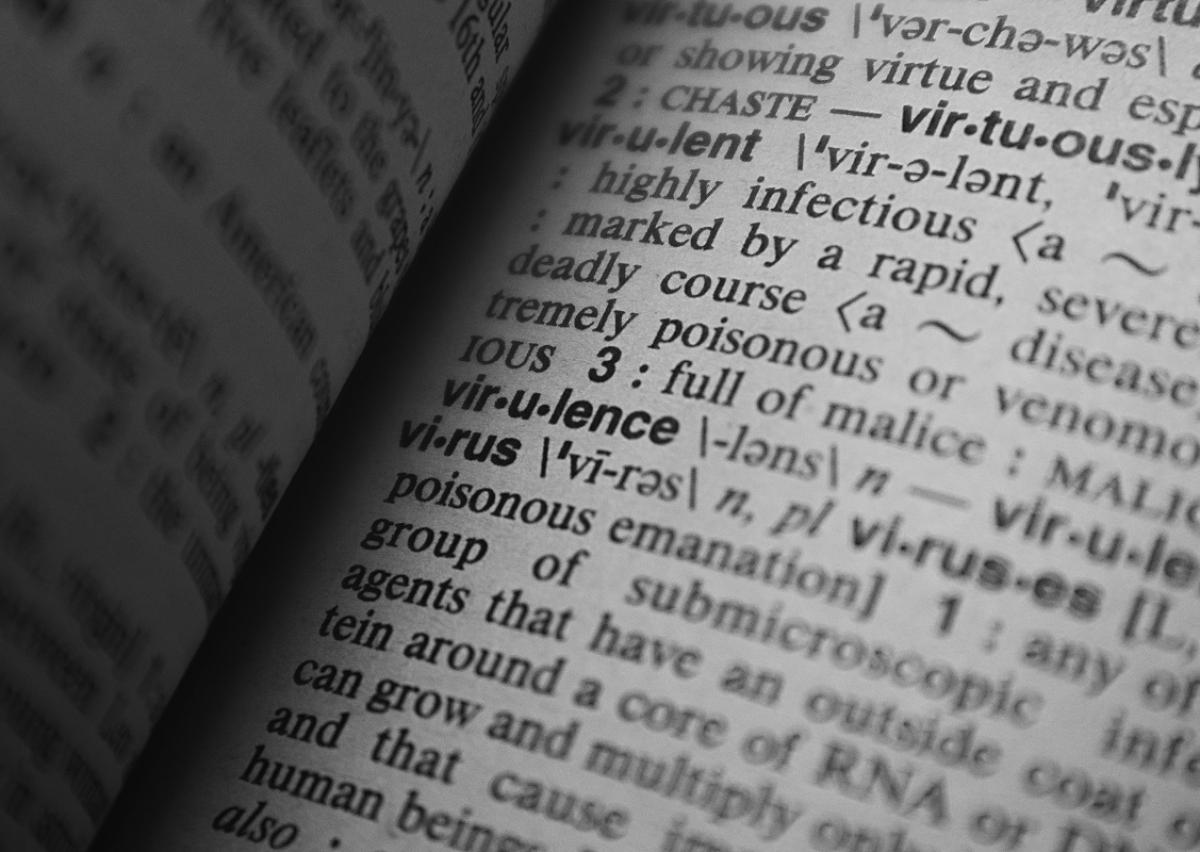


COVID-19 has given us many things. Appreciation of the technology that allows us to connect with loved ones. Admiration for the home baking that beats a Warburtons sliced white. A new-found respect for the fragility of human life. And admiration for the adaptability of the English language. Ellen Widdup explains.
All languages evolve. And this development is tied into the way we adapt to new realities and circumstances.
In the last decade, the Oxford English Dictionary added YOLO, moobs and bae to its pages along with fuhgeddaboudit. Thanks Donnie Brasco.
Last year it also added adulting and follically challenged but hasn’t yet updated its entries to include COVID.
Speaking of which, it's inevitable that the 2020 pandemic has – and will continue to have – an impact on our lexicology.
After all, in the last nine months we have rescued old words, super-charged others and created a whole host of unusual buzzwords.
Every year the Oxford Dictionary holds a Word of the Year competition but 2020 saw so many seismic events that the organisation expanded the remit to encompass several "Words of an Unprecedented Year".
These were chosen to reflect 2020's ethos, mood or preoccupations and therefore included Covid-19, WFH, lockdown, circuit-breaker, support bubbles, keyworkers and furlough.
Online dictionary Dictionary.com disagreed however. Their users elected "unprecedented" as top of the list.
And, I have to say, I’d have voted for this too.
After all, in these unprecedented times, we have certainly been using this adjective to well, unprecedented levels.
The problem with over-use of a word is that it diminishes its original meaning.
A Google of news headlines using the word “unprecedented” reveals it wasn’t just used for the pandemic this year. It’s also been adopted for the Trump Biden battle, Megan and Harry’s exit from Royal duties, an exodus of migrant workers leaving the UK and a… erm… golf tournament.
According to the English Dictionaries research, the word was the only one that could do justice to the scale and pace of the upheaval this year and has ended up entrenching itself in our everyday vocabulary.
But by doing so, it shows just how much humans hunger to find the right word for trying times but also how sensitive we are to language use. So much so that not even a pandemic can put an end to that great, unifying pastime of complaining about our language pet peeves.
COVID has also extended our use of slang terms.
There are lots of reasons for this – sometimes we just like to shorten words to make our communications more succinct.
But linguistic creativity is also sometimes undertaken for humorous purposes, serving in part to bring people together.
Miss Rona, in case you haven’t guessed, is slang for COVID-19 or coronavirus. It has also been called “The Rona” or “The Ronie” and even “Miley Cyrus” which is Cockney Rhyming slang.
Quarantining also has a few slang words, staying home from college has been called a “coronacation” and we are familiar with the “covidiot” (someone ignoring public health advice).
All of this is a kind of lexical social glue. In the absence of the regular social contact, shared talk is an important part of helping people feel connected to one another.
Nearly 40 years ago, the terms AIDS and HIV entered the English language. But they didn’t appear in the dictionary until the second edition was published at the end of the 1980s.
In contrast, Covid-19 has been widely-adopted and one of the biggest factors in the spread of coronavirus terminology is the fact that we’re more digitally connected than ever before.
The irony is that the disease itself has pushed us to use these online platforms more than ever. One could argue that the use of such technology has been unprecedented. But if they did, I’d probably scream.